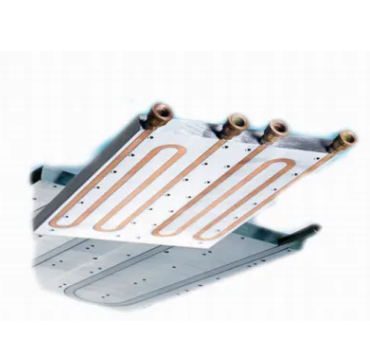- Time:2024/01/11 Posted:Dongguan Quality Innovation And Technology Co.,Ltd
Understanding the Importance of Aluminum Cooling Plates in Precision Cooling Solutions
The Function of Precision Cooling Systems

Precision cooling systems play a critical role in various industries, such as data centers, electronics manufacturing, and laser technology. These systems are designed to maintain a stable and optimal temperature for sensitive equipment and components, ensuring their reliable and efficient operation. One key component within precision cooling solutions is the aluminum cooling plate.
What are Aluminum Cooling Plates?
Aluminum cooling plates are specially designed heat sinks made from high-quality aluminum alloys. These plates have exceptional thermal conductivity properties, allowing efficient heat transfer from the equipment to the ambient air. They are engineered to dissipate heat effectively and ensure temperature stability, preventing any negative impact on the performance and lifespan of the sensitive equipment.
The Role of Aluminum Cooling Plates in Precision Cooling Solutions
Aluminum cooling plates serve as essential heat-dissipating elements within precision cooling solutions. Their primary role is to absorb and transfer the heat generated by electronic devices or other heat-generating components to the surrounding environment, enabling effective temperature regulation. By removing excess heat, aluminum cooling plates help maintain the desired operating conditions and prevent overheating, which could potentially lead to equipment failure or performance degradation.
Moreover, aluminum cooling plates are often integrated with cooling fans or liquid cooling systems to enhance their heat dissipation capabilities. The combination of these cooling methods ensures efficient cooling and further enhances the overall performance and reliability of the precision cooling solution.
The Benefits of Aluminum Cooling Plates
There are several advantages to utilizing aluminum cooling plates in precision cooling solutions:
- Excellent Thermal Conductivity: Aluminum has a high thermal conductivity, allowing for efficient heat transfer and dissipation.
- Lightweight and Durable: Aluminum cooling plates are lightweight and yet provide excellent structural strength and durability.
- Corrosion Resistance: Aluminum alloys used in cooling plates are highly resistant to corrosion, ensuring long-term reliability and performance.
- Cost-Effective: Aluminum is a cost-effective material, making cooling plates accessible for various industries and applications.
- Compatibility: Aluminum cooling plates can be customized to fit various equipment sizes and shapes, enabling seamless integration into precision cooling systems.
Applications of Aluminum Cooling Plates
Aluminum cooling plates find extensive use in multiple industries, such as:
- Telecommunications: Ensuring temperature control in base stations, routers, and switches.
- Energy: Facilitating efficient cooling in power electronics, inverters, and transformers.
- Medical: Maintaining optimal operating temperatures for medical imaging equipment, laser systems, and laboratory devices.
- Automotive: Cooling solutions for electric vehicle battery packs, motor drives, and power electronic systems.
- Industrial Automation: Temperature control for sensors, actuators, and industrial power supplies.
Conclusion
In precision cooling solutions, aluminum cooling plates are vital components that enable effective heat transfer and dissipation. With their exceptional thermal conductivity and other advantageous properties, aluminum cooling plates play a crucial role in maintaining optimal operating conditions for sensitive equipment. Their widespread applications across industries highlight the significance and practicality of incorporating aluminum cooling plates in precision cooling systems.
